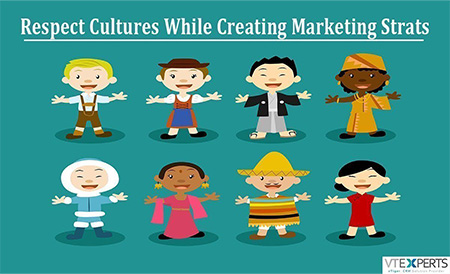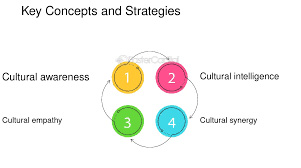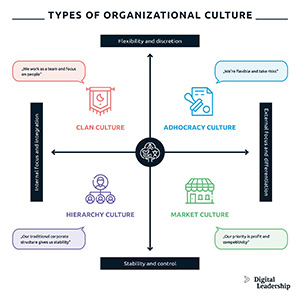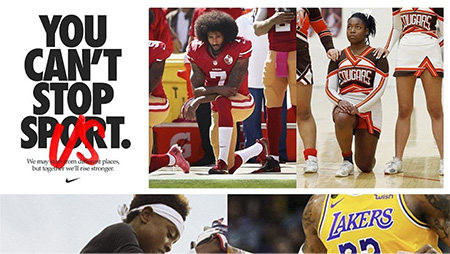Overview
Cultural marketing is a thoughtful process that harmonizes the message, values, and activity of a brand with the values, customs, and identity of specific groups of cultures. Rather than imposing one model, it accepts the nuance that characterizes individuals' thinking. In essence, cultural marketing stirs emotional affections, enhances genuine relationships, and deepens brand affections through respect for the traditions, languages, and ways of living of diverse audiences. In the global marketplace of today, it's no longer a choice, it's mandatory.

Key Elements of Cultural Marketing
- Authenticity
Advertising that maintains cultural authenticity requires genuine respect for the cultures represented instead of merely borrowing symbolic elements. Authentic messages establish trust between brands and consumers because emotional sensitivity of consumers leads to lasting loyalty. - Relevance
Your message achieves relevance when it connects directly to the fundamental realities and desires together with challenges that define a particular cultural group. Brands that establish understanding through their messaging create deeper meaning which results in immediate consumer connection. - Representation
Representation goes beyond diversity because it requires your brand voice and imagery to authentically reflect cultural identities which must be visible to audiences. The inclusion of representatives in your brand allows communities to experience genuine value instead of feeling like empty tokens. - Cultural Sensitivity
To be culturally sensitive one needs to respect the boundaries and taboos and historical context of traditions instead of memorizing every rule about them. Brands need to handle content with care so it does not exploit or demean real-life experiences. - Storytelling
Storytelling enables brands to make their message human by using culturally rich stories. When brands connect to personal or shared stories, they provide recallable memories that build identity and emotional connection.

Importance of Cultural Marketing
- Building Deeper Connections with Audiences
Cultural marketing meets emotional and social desires, making people feel understood and appreciated. When brands establish relationships with people or achieve cultural relevance they transform from products into elements that integrate with people's life narratives. - Enhancing Brand Perception and Trust
The way audiences perceive brands changes when companies deliver messages with cultural sensitivity. When companies show human traits and become welcoming to their audience they build enduring trust which leads to improved long-term loyalty and advocacy. - Driving Competitive Advantage
In saturated markets, cultural marketing differentiates brands. By responding to the unique needs and identities of underrepresented segments, companies can own where competitors are generic. - Expanding Market Reach
Targeting campaigns to appeal to different audiences opens new markets previously unserved. This expands brand visibility, enhances conversion potential, and creates inclusive growth. - Strengthening Community Engagement
Cultural marketing fosters belonging. As a brand continually encourages and elevates cultural conversation, it organically places itself in communities, fueling continued dialogue and substantive relationships.

Types of Cultural Marketing
- Multicultural Marketing
Multicultural marketing addresses distinct ethnic or cultural groups with messages specifically designed for them. It accommodates varied languages, histories, and values, expressing voices that explicitly address separate identities. - Inclusive Marketing
Inclusive marketing brings every community, be they of a specific race, gender, ability, or orientation, under notice and heard. It promotes diversity and actively shatters stereotypes. - Heritage Marketing
Heritage marketing honors the traditions, heritage, and cultural heritage of society. It makes nostalgic, respectful associations by glorifying root history and generation pride. - Cause-Based or Social Impact Marketing
This method ties brand identity to causes that are culturally aligned, like social justice or equity. It demonstrates passion beyond business, placing brands in the role of driving good cultural change. - Localized Marketing
Localized advertising addresses the language, culture, and interest of a particular city or region to create hyperspecific content that is personal and relevant. - Experiential or Event-Based Cultural Marketing
It is about producing experience in real life or virtual life on the basis of cultural celebration, rituals, or stories. It enables audiences to experience the brand through in-depth, rich engagement.

Why does Cultural Marketing work?
Cultural marketing functions effectively because it reaches directly into human nature by connecting with values and cultural heritage while fostering community bonds. Psychological research shows that individuals tend to accept brands which align with their beliefs while showing respect for their cultural background. The more people know about something the more they trust it which makes marketing transform into dialogue instead of push sales. Marketing in market-driven settings enables brands to reach fresh customer segments while satisfying the demands of diverse pluralistic communities. Current consumers purchase more than products since they acquire narratives alongside values and cultural representation. Cultural marketing executed correctly results in increased brand value and enhanced customer satisfaction and sustainable business expansion.
Pros of Cultural Marketing
- Boosts Brand Relevance
When brands express their voice through cultural narratives they automatically become relevant to their audience. The messaging gains relevance through time and emotional appeal which connects with various communities. - Builds Emotional Connections
Cultural marketing creates emotional responses by connecting people with shared memories and cultural values and traditional practices. These emotional bonds boost both consumer purchasing behavior and brand loyalty and enduring brand affection. - Enhances Brand Loyalty
Brands which consistently demonstrate cultural respect through their representation of core values win the trust of their audience. Trust leads customers to become loyal since it encourages them to buy repeatedly and remain long-term supporters of the brand. - Opens New Market Segments
Brands which recognize cultural diversity by responding to it gain access to consumer groups which were previously unreachable. The growth into new markets provides opportunities for innovation and growth. - Drives Authentic Engagement
People are drawn to authenticity. Authentic cultural marketing drives actual interactions, not superficial clicks or follows. - Encourages Advocacy
When individuals feel represented, they reinforce your message. Cultural marketing makes customers become loud champions who proudly share and recommend your brand to their networks.

Cons of Cultural Marketing
- Risk of Cultural Missteps
Cultural marketing can deceive or offend unless carried out with sensitivity. Blunders can have the ability to ruin brand reputation and cause public outcry in no time. - Increased Campaign Complexity
Sourcing multiple cultures requires tailoring messages, which complicates things, research through execution. It requires profound understanding, cross-functional collaboration, and subtle delivery in markets. - Higher Costs for Research and Localization
Cultural marketing usually calls for investing in local specialists, translation, and thorough research. While precious, these additional steps might balloon startup costs. - Potential Backlash if Insensitive
Even the most well-meaning campaigns can fail if a brand fails to heed the context or resorts to stereotyping. The result typically is negative word-of-mouth and lower consumer confidence. - Challenges in Measuring ROI
Cultural campaigns are sometimes as much about perception and emotional connection, metrics more difficult to measure than old-fashioned KPIs. To succeed, defining success might take a long-term perspective.

Strategies for Cultural Marketing
- Conduct Cultural Research and Insights
Begin with listening. Go deep into the values, behaviors, and pain points of the culture. Insights firsthand shape strategies that are authentic and respectful, not performative. - Collaborate with Local Influencers and Creators
Cultural insiders as partners add authenticity and depth. Their voices provide genuine storytelling that resonates within communities and authenticates your message naturally. - Tailor Messaging to Cultural Contexts
Avoid copy-paste marketing. Package your message to suit local conventions, language, and sense of humor so that it will resonate very well with local beliefs and emotional triggers. - Embrace Inclusive Representationns
Reflect the diversity of human richness in your messages. Representation has to be thought about, inclusive, and integrated into the brand story, not an afterthought. - Monitor Feedback and Adapt Quick
Culture changes. Monitor reactions in the moment, be receptive to criticism, and make adjustments with respect. Adaptability demonstrates that your brand hears and adapts. - Stay Authentic and Avoid Stereotypes
Authentic cultural marketing is based on fact. Bypass stereotypes and assumptions. Instead, celebrate distinctive stories and lived experience that reveal authenticity and humanity. - Engage in Community Conversatiokly
Go beyond broadcasting, listen, respond, and engage in the conversation. Being a participant in the cultural conversation generates trust, loyalty, and true connection over time.

Examples of Cultural Marketing
Nike's You Can't Stop Us was a classic case of cultural marketing by the pairing of athleticism and social justice narrative appealing across ethnic divides. Similarly, Coca-Cola's Share a Coke names localized campaign converted names into languages and territories, with personalization everywhere in the world. Airbnb has also gone culturally inclusive, showing hosts and guests of all types. These companies didn't merely market, they joined culture. Each program succeeded not through targeting demographics, but through respecting the identities, values, and voices of people, affirming that cultural resonance drives real-world influence and brand love.




